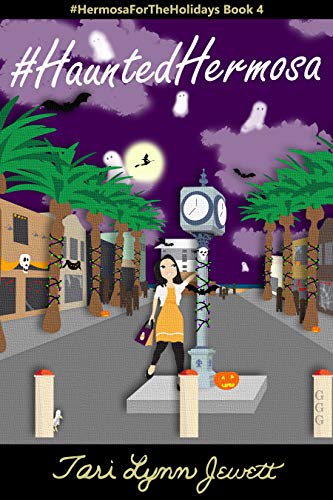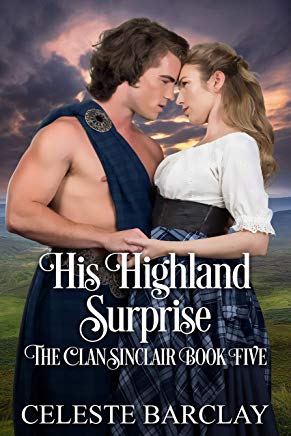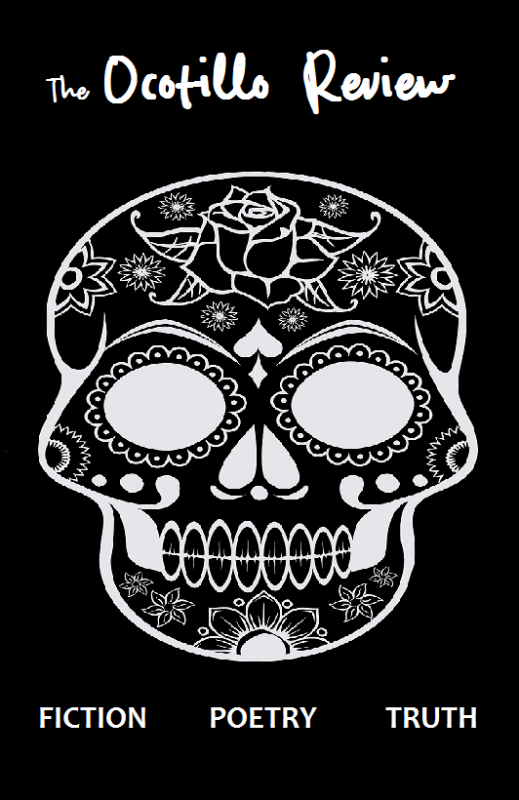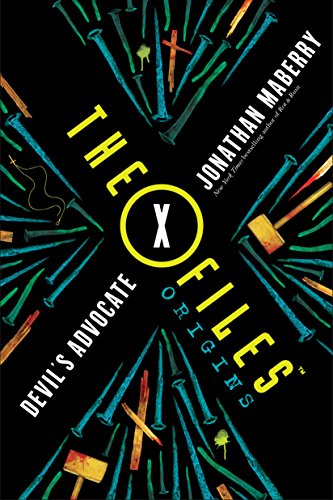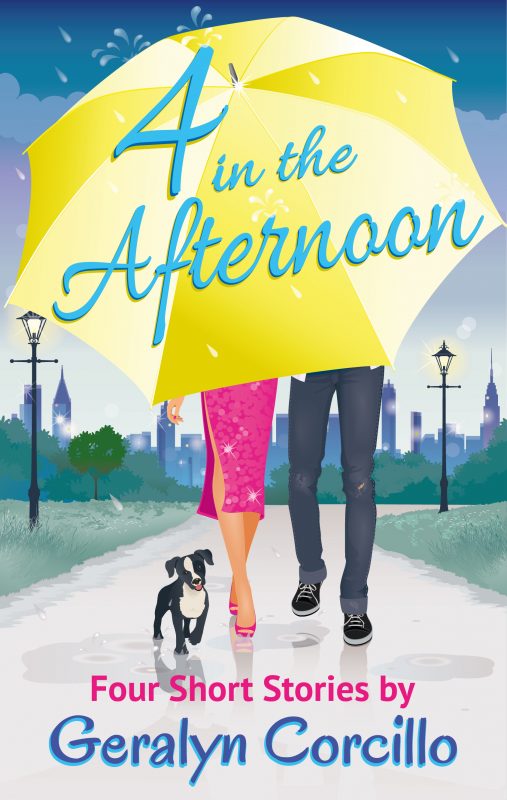Picture Perfect
January 30, 2025 by Dianna Sinovic in category Quill and Moss by Dianna Sinovic, Writing tagged as beach, fiction, short fiction
Shaun held the framed photo of his grandfather and traced the image with his finger.
“He was such a great man.”

Granddad had died four years ago, but the rawness of grief still gnawed at Shaun. He’d lost the man who had raised him when his own parents couldn’t—or wouldn’t.
And here he was, reviewing plans for his wedding, his fiancée at his side. Erin would never meet the person he owed his life to.
“I see where you got your good looks,” Erin said. “Too bad I never knew him. My own grandfather died when I was just a baby, so I never knew him either.” She paused, and looked down at her notebook. “Maybe we can honor your grandpa in some way at the reception?”
She launched into an update on the guest list, the bridal party, and other wedding details he honestly didn’t have an opinion on. They were getting married, and that was enough. If only Granddad were here . . .
Once again he touched the photograph, taken when his grandfather was Shaun’s age, his eyes sparkling in laughter, his ever-present Tilley hat pushed to the back of his head. In the background, the surf at Brigantine crashed onto the sand, a gull winging overhead. Shaun had framed the photograph after he reached adulthood and went out on his own. He wanted to be reminded of how far he’d come, thanks to the man.
Erin continued her updates, and he closed his eyes briefly. When he opened them, he was standing on a beach, with the waves rolling in below a clear sky. Gulls cried above him, and a briny breeze flowed off the ocean. Erin was looking at him, her mouth agape.
“Where are we?” she squeaked.
“Not sure,” Shaun said. “The Jersey Shore, I think.”
The beach was deserted except for a man walking toward them—the guy definitely had them in his sights. As the man drew closer, Shaun knew who it was, but not how or why.
The face was younger but unmistakable. “Granddad?”
In the warm summer sunshine, the man wore jeans and a tee, his head topped with his usual brimmed hat. His smile enveloped Shaun, and he followed that with a bear hug.
“Shaun, my boy,” the man said. “Good to see you.” He turned to Erin, shock still etched across her face. “And this must be your fiancée.” He extended a hand. “A pleasure, miss. You’ve got yourself a real catch in Shaun.”
Erin slowly put out her own hand, and the man covered it with both of his.
“But how . . . ?” Shaun said, his voice trailing off until the roar of the surf absorbed it. “You’re young—my age. And you’re here. It’s impossible.”
“Not impossible, but complicated,” his grandfather said. To Erin, he said, “You can call me Paul. I’ve known Shaun for years.” He offered his arm to her and winked. “I think it’s time to take a walk on the beach. Beautiful day for a stroll, don’t you think?”
For the next few hours, that’s what they did, talking and laughing as the waves tugged at their feet. With every step, Shaun tried to make sense of what was happening. Erin, trading jokes with Paul, was at ease as if she’d known the man for years, not just an afternoon.
Finally, Paul came to a halt and turned to Shaun. “You’ve done well, grandson. I’m proud of you.” He reached into his pocket and pulled out a silver dollar. “Take this. When the time comes to say your vows, this will stand in for me, since I can’t be there.”
Shaun took the coin, felt the smoothness of the metal, its unyielding strength.
“Thank you,” he said, content to remain in this must-be-a-dream state as long as he was allowed.
The wind gusted, sending up spray from the surf. Paul grabbed hold of his hat and settled it on the back of his head.
Erin, still at Paul’s side, reached up and adjusted it. “There, that looks better,” she said, smiling. “And it keeps the sun out of your eyes.”
Shaun shaded his own eyes in the brightness, closed them briefly—and he was again in his living room, the framed photo of his grandfather back on the side table where he kept it.
His right hand still gripped the silver dollar, and he opened his palm. The coin was real enough; he hadn’t dreamt that.
Erin shook her head, her eyes dazed. “What just happened?”
“I’m not sure,” he said.
He glanced at his grandfather’s photograph. It was the same, and it wasn’t. The Tilley hat perched on the back of his grandfather’s head was now straightened, and his lips curved in a friendly smile.
‘Round Midnight
December 30, 2024 by Dianna Sinovic in category Quill and Moss by Dianna Sinovic tagged as Dianna Sinovic, New year's Eve, short story
The clock read fifteen minutes to midnight on New Year’s Eve, and the party had descended into arguments instead of winding up for the big calendar change. Melissa and Jake were yelling in the foyer; Drew and his new girlfriend glared at each other over the punch bowl, and Julie and Maye stood at opposite ends of the room, each looking away or down.

The evening had started so peacefully. Ashlie sighed as she surveyed the standoffs and registered the growing tension in her home. She had no idea where Cole had vanished to. Was he also angry?
“Almost time!” She raised her voice over the dance music blaring from the speakers. No surprise that no one was dancing. She brought out her bag of noisemakers and passed them out. She had “Auld Lang Syne” programmed to play at the stroke of twelve. She’d hung mistletoe in several strategic doorways. The champagne was chilling in the fridge, the flutes ready on a fancy tray in the kitchen.
Where was everyone’s holiday spirit?
“Cole?” she called. Even if he was in a foul mood, he could at least help pour the bubbly when the time came—which was approaching quickly.
He didn’t appear, so she texted him. No response. Was he sulking in the bathroom? If so, she was on her own.
A crash and the sharp tinkle of breaking glass from the foyer. Someone—Melissa?—screamed, “I hate you!”
Petra, a colleague from work whom Ashlie had invited at the last moment, appeared at her side. “Show me where the broom is and I’ll go clean up the mess.”
Ashlie blinked in surprise. “Thanks.” She directed Petra to the supply closet. “There’s a broom and a dustpan in there. I’ll go open the champagne. Only five minutes left . . . ”
She filled the flutes halfway and carried the tray into the great room. “Grab a glass! And let’s count down.”
The guests swarmed the tray, apparently setting aside their differences for the moment. “Ten, nine, eight . . . ” They joined in the recitation, erupting in applause and raising their voices to blend with the song on the speakers, “Should auld acquaintance be forgot . . . ”
Just like clockwork, Ashlie thought, relieved that the annual tradition could still dampen disagreements and bring people together. Tomorrow they could resume their spats, but not while the party continued.
Then Jake, who had moved into the great room after the foyer incident, called out, “It’s after midnight, right?”
“Has to be,” Drew said, belting back his champagne. “We already sang the new year’s song.”
“But you didn’t kiss me under the mistletoe,” his girlfriend said, with a pout. Ashlie couldn’t recall the woman’s name.
“Still time,” Jake said, holding up his phone. “Mine’s stuck at 12:00. Weird.”
“Mine’s stuck, too,” Julie said.
Several others echoed her. “Mine, too.”
Ashlie pushed through the kitchen door to check the digital clock on the range. It read the same: 12:00. But it had to be at least a quarter past the hour already.
She opened another bottle of Moutard Brut and refilled glasses held out to her.
“Might as well drink up while time stands still,” Drew said.
“Here, here,” Maye called from the couch.
Ashlie noted that Cole had reappeared and was seated next to Petra. Maybe the night would never end and she would not have to face him and his excuses.
Turning to the Spotify app, she cued up its New Year playlist and tapped on Play. Nothing happened; just a spinning circle. The wifi must be down, or maybe the modem. She switched to her music app and started a downloaded album, anything to fill the silence of the room.
With the speakers once again booming, a few people stood to dance. Drew pulled his girlfriend into a doorway for a deep kiss. The time remained stubbornly stuck at midnight, but no one seemed to care. Even Melissa rejoined the group, and a few moments later, followed Jake to an open spot on the carpet to move as one to the music.
It was a party, after all, and they’d keep the bash going ‘til dawn … if it ever came.
More of Dianna’s stories are in the following anthologies:
Birthday Wishes
November 30, 2024 by Dianna Sinovic in category Columns, Quill and Moss by Dianna Sinovic, Writing tagged as holiday story, short fiction, writing
Today was her birthday, but her closest friends were busy, so Nicole took herself out to dinner. The Purple Potted Plant was her favorite restaurant for special occasions, and this year qualified as one: her fortieth.

She tamped down the urge to feel self-pity. She had no one to join her to mark the date; her ex certainly wouldn’t, and apparently, no friends felt strongly enough to share a birthday meal with her.
The waitstaff showed her to a table that overlooked a bustling street in Doylestown. Her birthday coincided with the start of the holiday season, and already giant, fake snowflakes hung from the lamp posts. They were another reminder that she needed to make plans soon to avoid being alone at Christmas. Daniel, her ex, would be with his new wife and their three-year-old.
Pulling herself back to the present, Nicole studied the menu. The chicken looked tempting, but the gnawing in her midsection was for something more than food. This milestone year was just the latest in a life she’d spent wondering who she really was. Adopted at as an infant, she had no memory of her biological mother. She craved details—any details. But the woman she called mother, the woman who’d raised her, had no interest in that.
“Isn’t it enough that you’re here, loved by us?” Brenda had said when Nicole begged her to tell what she knew. “No need to dig up a painful past.”
Nicole placed her order and asked for a glass of pinot grigio. Staring out the window, she watched the passersby, envious that they all had places to go. The swish of a moving chair drew her attention back to the table.
“Mind if I join you?” An older woman in a tailored, cloth coat stood there. “You seem like you could use a friendly smile.”
Taken aback at the woman’s forwardness, Nicole started to say no, but then shrugged. What the heck; it was better than moping alone in the crowded restaurant. “Of course. Please sit.”
“I’m Judy,” the woman said. “Pleased to meet you.” She removed her coat and sat down with a sigh. “It’s been years since I’ve eaten here.”
“I’m Nicole. What brings you here tonight?” Conversation was just what she needed, Nicole thought. Judy, in her dark pants and russet sweater, was a welcome distraction.
Judy’s smile grew warmer. “It’s my daughter’s birthday.”
“Oh?” Nicole smiled back. “How fun. It’s my birthday, too. But,” she paused, taking in the room full of chatting people, knives and forks clinking against plates, “shouldn’t you be with her to celebrate?”
“Oh, she’s near enough,” the woman said. “She has her own life now.”
Without really meaning to, Nicole mused aloud about her life—the pluses (she had a successful career as an editor) and the minuses (her failed marriage to Daniel). She shared her joy at finding the perfect hill on her morning walks to watch the sunrise and her disappointment over the loss of yet another friend who’d moved away. Then she put down her fork, feeling her face flush.
“How rude of me,” she said. “I’ve been talking about myself this whole time. I’m so sorry.” She usually deflected conversation back to the other person rather than talk about herself. What had gotten into her this evening? She picked at the food on her plate, no longer hungry.
Judy had barely touched her own food, seeming content to just listen to Nicole, offering a murmured “I see,” “That must have been difficult,” or “Interesting” from time to time.
Changing the subject, Judy said, “Since it’s your birthday, tell me, if you could alter anything in your life, what would you wish for?”
Nicole didn’t hesitate. “To know who my mother is. I mean, Brenda adopted me as a baby, and she and Paul, my adopted dad, love me, and I love them, but not knowing who gave birth to me brings me sadness even all these years later.” After that passionate response, Nicole caught herself. Was she really that starved for attention that she had to bring all of their talk back to her? “What about you?” she said. “What would you wish for?”
The older woman’s smile was bittersweet. She stood, pulling on her coat. “I’ve got to go now.” She slipped her bag over her shoulder. “To answer your question, though, if I could wish for anything, it would be to watch my daughter grow up. Fate didn’t grant me that. Instead, I missed all the milestones, I missed watching her turn from child to adult, but I’m so happy to see she’s turned out well.” She winked. “Even if she needs to trust in herself a bit more.”
Judy turned away just as the server arrived to clear the table. When Nicole looked up a moment later, the older woman was gone. Had the wink meant what she thought it did? She watched for Judy out the restaurant window, hoping to see her pass by on the sidewalk under the streetlights, but she didn’t appear.
“Happy birthday,” the server said, placing a slice of chocolate torte in front of Nicole. Edible confetti lay sprinkled over it, topped by a miniature flag printed with Best birthday wishes!
“I didn’t order this,” Nicole protested, although she was touched by the effort. “It’s fine, though. I’ll pay for it. You can bring the check for both of us—” She stopped. The place setting opposite her showed no sign that anyone had been there, the flat wear still wrapped in a cloth napkin.
The server chuckled. “Both of you, huh? But here’s another odd thing. I don’t remember bringing your check, but our system shows that your meal has already been paid for. You’re all set.”
Some of Dianna’s stories are in the following anthologies.
On the Wing
October 30, 2024 by Dianna Sinovic in category Columns, Quill and Moss by Dianna Sinovic, Writing tagged as birding, flash Fiction, short fiction, writing
The post promised an autumnal birding phenomenon not to be missed. Steph wasn’t really a birder—she could never tell one sparrow from another—but she did like birds. The local nature site urged anyone interested to show up just before dusk at a reservoir in the hills of Bucks County. There they would watch as a large flock of starlings swooped and tumbled in a remarkable, unified movement called a murmuration.

She reached out to several friends, but no one could make it. And Claire was gone; Claire, who had given Steph a rudimentary lesson on birds several years before. Steph didn’t know if Claire had ever seen the starling flock. She would go, alone, in memory of her friend.
When she arrived at the nature center, a tangerine sun sat on the horizon. A handful of cars filled the lot, and a knot of people stood outside the building entrance, which was flanked by several large pumpkins and a scarecrow. Steph made her way to the group, adjusting her binoculars around her neck. The center director, a woman in a blue down vest and a wool watch cap, was already talking.
“We’ll take the boardwalk to the lake shore,” the director said. “That’s the best place to see the birds. They’ll start arriving within the next fifteen to twenty minutes.”
Intimidated by what she thought of as “true” birders, Steph hung at the back of the group as they set off toward the lake. The slight October breeze made her zip her fleece jacket and pull out her mittens. It carried a faint whiff of fireplace smoke and moldering vegetation. Dried leaves scuttled along the wooden planks and crunched under hiking boots, and a handful of crows cawed overhead. Claire would have been at the front of the line, pulling Steph along, making her feel at home and welcome despite her limited knowledge of avian life.
Many birds are like people. They prefer to hang out in groups. That was a bit of Claire wisdom Steph dredged up as she walked. But Steph was more of a loner. More like a heron, she decided, preferring to watch the world by herself. Except. She missed Claire.
“Everyone!” the center director shouted. “The starlings are starting to gather across the lake. Keep an eye on the small flocks. They’ll merge into bigger and bigger groups.”
Focusing the binoculars at the far shore, Steph swept them up and around, listening as others in the group called out. Sure enough a small flock dipped and turned in the distance. Another flock appeared to the left. Yet another materialized. Soon the flocks became one—a large swirling mass of dark birds dancing to their own feathered rhythm.
“Oh, Claire,” Steph breathed. If only she could have seen this magical phenomenon.
As if in answer, the now-large flock swooped upward as one entity and curved to the right. The trailing birds formed a line, and the complete symbol became the letter C.
In a whisper on the wind, Steph could have sworn she heard Claire’s voice: Even herons need companionship. Don’t be afraid to reach out.
More of Dianna’s Stories
Door Knocker
September 30, 2024 by Dianna Sinovic in category Quill and Moss by Dianna Sinovic, Writing tagged as flash Fiction, short fiction, writing
The staircase is steep, a small hill of thirty-five steps to ascend to reach your room. This was not in the description you read of the quaint New England hotel when you did your research. You realize quaint has more than one definition. The stairs are only the first of several aspects of this lodging that were omitted in the details provided. The second is that there are only three rooms in the hotel, because the first floor houses not only a podiatrist’s office but also a small gift shop (with only intermittent hours). The third omission is one you will come to realize as the day slips into night.

Room One overlooks a winding creek and a stand of white pine. You are glad for the quiet until the innkeeper informs you that you are currently the sole guest. When you push for a reason, she explains with a shrug that it’s the off-season in this tourist town. She also informs you that she leaves at five o’clock and then entrusts you with the security code for the hotel’s entrance.
The room has a coffeemaker, so you brew a cup and unpack your suitcase—only half full because you are only there for two days, the more important day being tomorrow, when you will give a presentation to a potential client.
At a table big enough for only your laptop and the cup of coffee, but with a serene view of the creek, you review your slides—which ones to edit and which to scrap. Tomorrow’s pitch holds the key to your future and that makes your hand shake as you raise the cup to your lips.
After a dinner down the block of grilled chicken and a side salad—you are trying to lose ten pounds!—you read in your room until nearly midnight. It’s after you turn out the bedside lamp that the noises begin.
First, a bump against the far wall of your room. Then a crackle. More bumps. Muffled voices arguing. This is the off-season; you’re the only one here this week. The innkeeper had told you this conspiratorially. Now you wonder if she somehow forgot about the guest next door.
You put a pillow over your head to block the noise, but the commotion seeps into your subconscious, putting you into an uneasy sleep with dreams of your PowerPoint slides disappearing as you click on them before a room full of people who frown.
Finally, at two-thirty, with the noise unabated, you pull on clothes and march to Room Two. The hallway lights flash on with your movement.
Taking a deep breath to steel yourself, you give a polite knock. No response, but you can hear sounds of laughter, clinking glasses, the thrum of a bass beat. A stronger knock. You consider how tired you will be by morning.
You raise your fist to pound on the door, and the noise ceases. The only sound now: a lone cricket chirping in the hallway behind you. The latch clicks and the door slowly swings open. The dim interior is illuminated only by a nightlight on the opposite wall. Beyond the doorway is silence—no movement, no whispers, nothing. And you remember that you are alone in this building.
The next morning, all is quiet next door, and as you splash water on your face, you wonder if what you remember was just a bad dream. After all, you are stressed: The success of your business hinges on how well you do today.
The crisp black slacks and stylish silk shirt hide those extra pounds, and you approve of the young woman looking back at you from the full-length mirror. Sipping coffee, you check your bag for the files you’ll need, then touch up your lip gloss. You’ve masked the circles under your eyes as best you can; you are not a night person, as much as your friends want you to be.
Checking your watch, you slip your laptop bag over your shoulder and open the door to leave. You have enough time to drive to the interview, stopping at Starbucks on the way. More coffee will either energize or frazzle you. So much for a good night’s sleep.
In the hallway, precisely centered before you, sits a white bakery bag, the top folded closed. You look left and right, but the hallway stands empty. Cautiously, you pick up the bag, noting that someone has written your name in neat script. A perk from the hotel?
The bag opens easily, and nestled inside is a frosted muffin: scents of butter, cream, and brown sugar waft up, and you dig out the treat. Along with the muffin, your hand catches on a slip of paper, which flutters to the floor.
Now ravenous, you bite into the muffin, then pick up the paper. Another bite finishes the muffin. Delicious, maybe the best muffin you’ve ever had.
You unfold the paper and read the words written in the same neat script:
Our apologies if our party disturbed your sleep. Please accept this peacekeeping gesture. You will get the job.
No signature, but you assume it’s from the innkeeper.
Oh, well. You crumple the bag, hoping at the truth of her positive message.
When you arrive at the appointment, the client job offer is waiting for you; no presentation needed.
Back at the hotel, you thank the innkeeper for the morning muffin and share your good news.
“Muffin?” she says, her eyebrows raised.
Some of Dianna’s stories are in the following anthologies.
Affiliate Links
A Slice of Orange is an affiliate with some of the booksellers listed on this website, including Barnes & Nobel, Books A Million, iBooks, Kobo, and Smashwords. This means A Slice of Orange may earn a small advertising fee from sales made through the links used on this website. There are reminders of these affiliate links on the pages for individual books.
Search A Slice of Orange
Find a Column
Archives
Featured Books
HIS HIGHLAND SURPRISE
A confirmed bachelor with no intentions of settling down...
More info →4 IN THE AFTERNOON
Dates, dogs, football, monsters in the attic, misunderstandings, and unexpected discoveries abound in these four romantic comedy short stories.
More info →Newsletter
Contributing Authors
Search A Slice of Orange
Find a Column
Archives
Authors in the Bookstore
- A. E. Decker
- A. J. Scudiere
- A.J. Sidransky
- Abby Collette
- Alanna Lucus
- Albert Marrin
- Alice Duncan
- Alina K. Field
- Alison Green Myers
- Andi Lawrencovna
- Andrew C Raiford
- Angela Pryce
- Aviva Vaughn
- Barbara Ankrum
- Bethlehem Writers Group, LLC
- Carol L. Wright
- Celeste Barclay
- Christina Alexandra
- Christopher D. Ochs
- Claire Davon
- Claire Naden
- Courtnee Turner Hoyle
- Courtney Annicchiarico
- D. Lieber
- Daniel V. Meier Jr.
- Debra Dixon
- Debra H. Goldstein
- Debra Holland
- Dee Ann Palmer
- Denise M. Colby
- Diane Benefiel
- Diane Sismour
- Dianna Sinovic
- DT Krippene
- E.B. Dawson
- Emilie Dallaire
- Emily Brightwell
- Emily PW Murphy
- Fae Rowen
- Faith L. Justice
- Frances Amati
- Geralyn Corcillo
- Glynnis Campbell
- Greg Jolley
- H. O. Charles
- Jaclyn Roché
- Jacqueline Diamond
- Janet Lynn and Will Zeilinger
- Jaya Mehta
- Jeannine Atkins
- Jeff Baird
- Jenna Barwin
- Jenne Kern
- Jennifer D. Bokal
- Jennifer Lyon
- Jerome W. McFadden
- Jill Piscitello
- Jina Bacarr
- Jo A. Hiestand
- Jodi Bogert
- Jolina Petersheim
- Jonathan Maberry
- Joy Allyson
- Judy Duarte
- Justin Murphy
- Justine Davis
- Kat Martin
- Kidd Wadsworth
- Kitty Bucholtz
- Kristy Tate
- Larry Deibert
- Larry Hamilton
- Laura Drake
- Laurie Stevens
- Leslie Knowles
- Li-Ying Lundquist
- Linda Carroll-Bradd
- Linda Lappin
- Linda McLaughlin
- Linda O. Johnston
- Lisa Preston
- Lolo Paige
- Loran Holt
- Lynette M. Burrows
- Lyssa Kay Adams
- Madeline Ash
- Margarita Engle
- Marguerite Quantaine
- Marianne H. Donley
- Mary Castillo
- Maureen Klovers
- Megan Haskell
- Melanie Waterbury
- Melisa Rivero
- Melissa Chambers
- Melodie Winawer
- Meriam Wilhelm
- Mikel J. Wilson
- Mindy Neff
- Monica McCabe
- Nancy Brashear
- Neetu Malik
- Nikki Prince
- Once Upon Anthologies
- Paula Gail Benson
- Penny Reid
- Peter J Barbour
- Priscilla Oliveras
- R. H. Kohno
- Rachel Hailey
- Ralph Hieb
- Ramcy Diek
- Ransom Stephens
- Rebecca Forster
- Renae Wrich
- Roxy Matthews
- Ryder Hunte Clancy
- Sally Paradysz
- Sheila Colón-Bagley
- Simone de Muñoz
- Sophie Barnes
- Susan Kaye Quinn
- Susan Lynn Meyer
- Susan Squires
- T. D. Fox
- Tara C. Allred
- Tara Lain
- Tari Lynn Jewett
- Terri Osburn
- Tracy Reed
- Vera Jane Cook
- Vicki Crum
- Writing Something Romantic
Affiliate Links
A Slice of Orange is an affiliate with some of the booksellers listed on this website, including Barnes & Nobel, Books A Million, iBooks, Kobo, and Smashwords. This means A Slice of Orange may earn a small advertising fee from sales made through the links used on this website. There are reminders of these affiliate links on the pages for individual books.
















